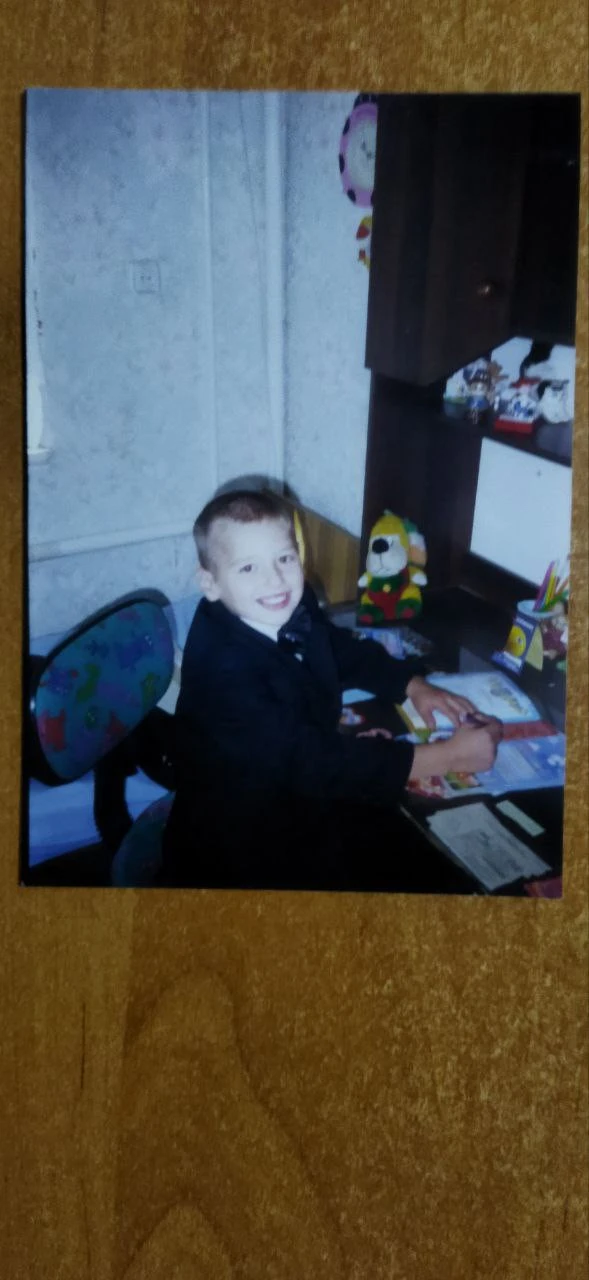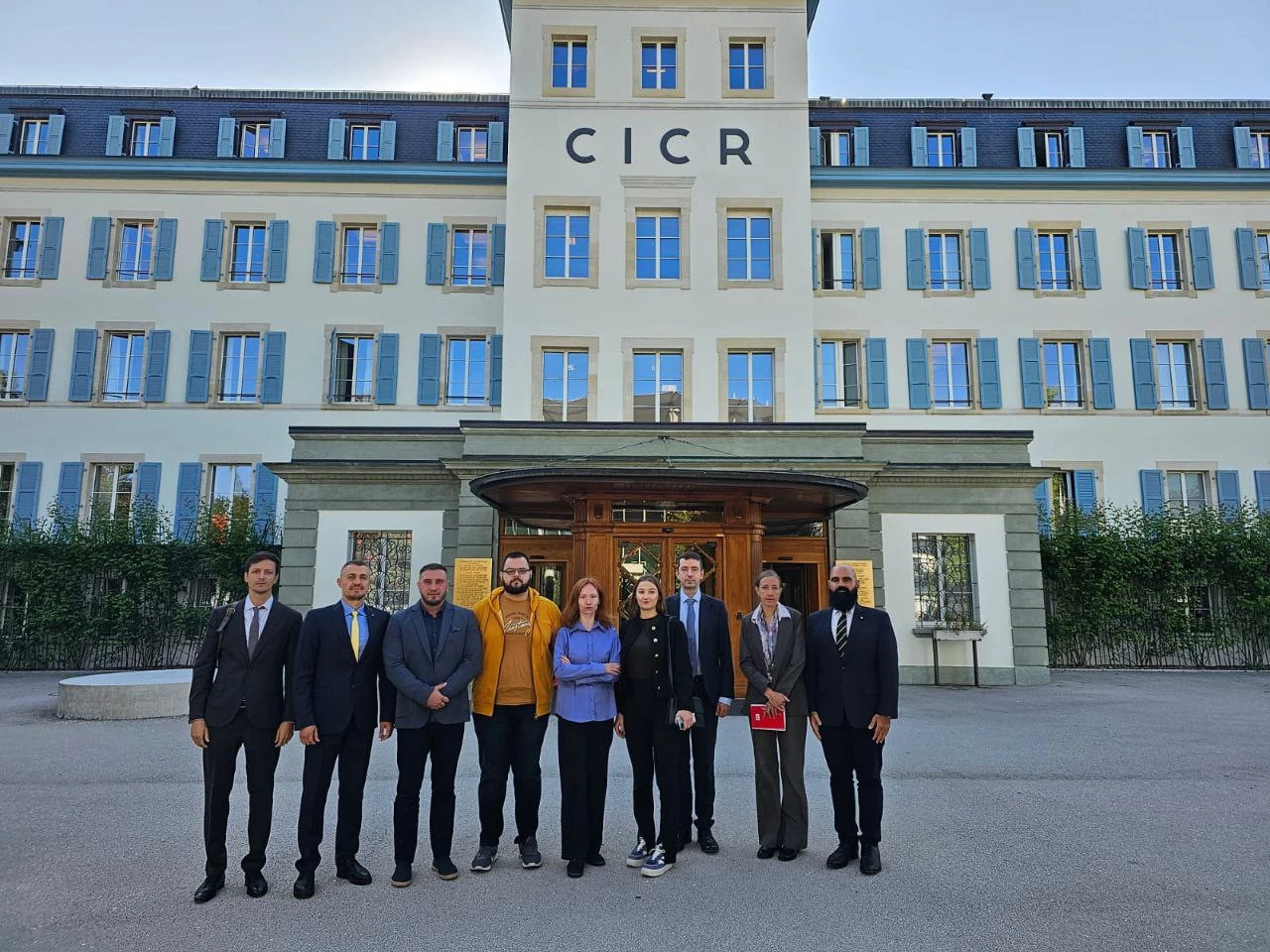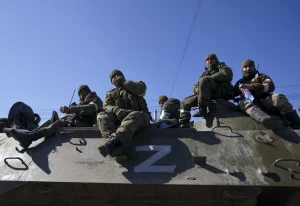
Executed in Olenivka Russian Captivity: The Story of a Boy from the Cherry City
Ukrainian Ksenia tells the story of her brother Igor Prokopenko, a soldier defending Azovstal who was killed by the Russian forces in Olenivka
Since childhood, Igor Prokopenko harboured dreams of military service. His dream was to join the "Azov'' battalion. And in January 2022, that dream came true, just a month before the extensive Russian invasion of Ukraine. By day, he trained alongside his comrades, while evenings were dedicated to studying the history of Ukraine. His greatest fascination lay in the era of the Cossacks (semi-nomadic and semi-militarized people, who lived in the Ukrainian steppes during XV-XVIII centuries), envisioning himself as one. Igor exuded sincerity and proudly sported the “oseledets” (a traditional Ukrainian hairstyle that features a long lock of hair sprouting from the top or the front of an otherwise closely shaven head).

The war found Igor in the port industrial city of Mariupol in southern Ukraine on the shores of the Sea of Azov. He unhesitatingly stood in defence of Ukraine. It was the 24th of February, 2022. Five months later, he perished in Russian captivity during a terrorist attack, alleged by Ukrainian investigation to have been orchestrated by the Russians themselves to hide the traces of torture on Ukrainian prisoners of war.
On July 29, 2022, following an explosion in the colony in Olenivka, Donetsk Oblast — an area of Ukraine occupied by Russians — 53 Ukrainian prisoners from Azovstal were killed. The Russian side initially accused the Ukrainians themselves of the explosion. However, they had not granted permission for representatives from international organizations to conduct an impartial international investigation. The Ukrainian side is convinced that Russia orchestrated the mass murder of Ukrainian prisoners to incriminate and discredit Ukrainian forces.
The UN initially established a mission to establish facts surrounding the tragedy in Olenivka, but it was later disbanded due to the impossibility of transporting experts to the scene. Thus, the horrific crime remains unresolved — the relatives of the deceased plead for an investigation and for those responsible to be held accountable.
The story of one of those killed in Olenivka, Igor Prokopenko, was recounted to us by his sister Ksenia, who resides in Stockholm, Sweden.
He loved the history and dreamed of becoming a Cossack
Igor Prokopenko's family hails from Melitopol in the Zaporizhzhia region. This southern Ukrainian city, now under Russian occupation, was renowned for its orchards, particularly its cherry trees. The Melitopol cherry stood as a distinctive symbol of the city.
Igor's great-grandparents resided in Melitopol. It was here that his grandfather built a large house for the family to live in. Although the house was in a neglected state for a long time, Igor dreamed of restoring it and living there with his family.
"My brother was very hard-working. He loved working with his hands. So, after finishing school, he enrolled in a vocational school where he studied machinery. Then he worked at a factory. He was so proud that he could earn money on his own and be independent of his parents," recalls his sister Ksenia.
However, Igor's tenure at the factory was short-lived. Within a few months, he enlisted in the army. Initially, he served for two years in the National Guard, but he dreamed of joining the "Azov" battalion. It was a special police unit based on the shores of the Sea of Azov near the port city of Mariupol - hence the name "Azov". At this time, he began actively studying Ukrainian history, dreaming of becoming a modern Cossack and defending Ukraine.
Russian propaganda demonised the “Azov” battalion and feared it. The Russians, in particular, spread myths about "Nazis" within the battalion. However, Igor saw nothing of the sort there.
"My brother considered the 'Azov' soldiers as a model of dignity and courage. Igor was very impressed by the attitude of his elder comrades, who warmly welcomed newcomers as family. The elders explained everything and were like brothers. I know he had great respect for his commanders and comrades," Ksenia recounts.
In January 2022, Igor finally managed to sign a contract with "Azov."
Igor then visited his parents for a New Year's celebration. It was the last time when the entire family gathered in Melitopol. Immediately after the festivities, Igor went to the battalion's training base near Mariupol.
Mariupol was a large industrial city in the Donetsk region, on the coast of the Sea of Azov. Before the full-scale war, the city had nearly half a million inhabitants. During the hostilities, the city was heavily damaged, and many residents perished. According to the human rights organization Human Rights Watch, at least 8,000 residents died in Mariupol. The city remains under Russian occupation to this day.
And the war began
The morning of February 24, 2022, started for the Prokopenko family with Russian tanks already advancing into Melitopol. Igor was then in Mariupol, while his sister Ksenia was already residing in Stockholm, Sweden.
On February 24, 2022, the Russians entered Mariupol from the side of the Crimea and Luhansk regions, which had been occupied since 2014, and surrounded Mariupol. The city defended itself for 86 days, but the forces were uneven. The final battles for the city took place on the territory of the Azovstal metallurgical plant.
Ukrainian troops entrenched themselves in the plant's workshops and fought bravely. In doing so, they diverted Russian forces from other parts of the front, allowing the numerically smaller and less armed Ukrainian army to repel attacks by Russian occupation forces at that time.
On May 16, 2022, the Prokopenko family saw a message from Denis Prokopenko ("Redis"), the commander of the operation to defend Mariupol. It became clear that the Mariupol garrison was leaving Azovstal and surrendering to the Russians. The command weighed all the pros and cons and ordered the soldiers to lay down their weapons and surrender. Subsequently, Ukraine planned to conduct a series of prisoner exchanges and return the brave fighters home.
The family didn't know if Igor left with everyone else because Igor didn't call his relatives before or during the exit from Azovstal. The last time he contacted his family was at the end of April. Ksenia recalls that she looked at all the photos and videos posted by the Russians, but Igor was not in them.
“I remember that on that day (the 16th of May), President Zelensky had an address. He emphasized that the young men from the plant were under the guarantees of international organizations, namely the UN and the International Red Cross. This gave us hope that we would see him soon," says Ksenia.
The family had no information about Igor until the terrorist attack in Olenivka on July 29, 2022.
"I still can't forget that morning. Those terrible photos and videos I saw then are still vivid in my mind. I knew our men in captivity were not having an easy time, but to be killed so treacherously and horribly, unarmed and in their sleep — it's the height of cynicism", says Olena. Her voice trembles.
However, on that fateful day, the Prokopenko family remained unaware of Igor's fate in Olenivka. It wasn't until the following morning, July 30, 2022, that Ksenia stumbled upon the lists of casualties and wounded from the Olenivka terrorist attack, published by the Russians. There, among the names, Igor Prokopenko appeared second on the list.
Panic gripped Igor's family. Unsure of their next steps, they reached out to various authorities — the coordination headquarters, military units, Azov's support services, the Red Cross, and others. Yet, everywhere they turned, they were met with the same refrain: “wait for accurate information”.
Throughout this difficult period, the Prokopenkos clung to the fragile hope that Igor remained alive.
The Long Road to DNA Testing
In October 2022, Russia returned the bodies of those killed in Olenivka to Ukraine. At that time, Azov's patronage service added the Prokopenko family, as well as all the relatives of the presumed deceased, into a separate chat.
Following this, a lengthy period of waiting for the results of DNA testing began. The family was informed that it would not be a quick process because Ukraine was involving international experts to examine the bodies returned from Olenivka.
After enduring eight torturous months of waiting, the Prokopenkos finally received a call from Azov's support services on May 23, 2023, inquiring about arrangements to retrieve the body for burial. Two DNA matches had been made.
Despite these findings, Igor's family opted for an additional DNA test to definitively confirm whether the body recovered from Olenivka indeed belonged to their son. They turned to the International Commission on Missing Persons, with a branch in Kyiv, which agreed to facilitate further testing.
In September 2023, Ksenia submitted her DNA sample for examination. Should this third round of testing affirm Igor's identity, the family will proceed with the solemn burial ceremony.
Seeking International Justice
But the Prokopenko family doesn't plan to stop there. The goal of the family is to pursue the international investigation into the deaths of Ukrainian soldiers in Olenivka. This became especially relevant in January 2023 when the UN Secretary-General António Guterres disbanded the mission investigating the killing of Ukrainian prisoners of war in Olenivka, as the mission participants could not access the site of the attack.
Recognizing the need for collective action, families of the fallen soldiers in Olenivka came together to form the 'Olenivka Families Community'. Their mission: to secure the return of all those wounded in the attack, many of whom have endured nearly two years of inadequate medical attention under Russian control. Additionally, they are calling for an international inquiry and accountability for the Russians responsible for the loss of their loved ones.
Throughout the past year, the 'Olenivka Families Community' has worked diligently to shed light on the events that unfolded in Olenivka. Families have brought attention to the attack on both domestic and global platforms, with relatives of the deceased and injured making multiple visits to the offices of the United Nations and the International Committee of the Red Cross.

Ksenia also actively participated in these missions. Attending a UN session on human rights, she sought to draw international attention to the tragedy of Olenivka and to recount the atrocities inflicted by the Russians. She believes it's crucial to raise awareness of this tragedy abroad, as many foreigners remain unaware of the treatment endured by Ukrainian soldiers in captivity — from torture and rape to the ultimate sacrifice, as tragically witnessed by her brother and his comrades.
In September 2023, Ksenia participated in a working trip to Switzerland with the civilian wife of a victim in Olenivka, former prisoners of war, and representatives of the Coordination Headquarters.
At the UN and in the Swiss parliament, she shared Igor's story. Crucially, Ksenia showcased post-explosion footage, urged ongoing investigation, and highlighted that over 130 of Igor’s comrades remain captive. The circumstances of the attack and the weaponry used remain unclear, with perpetrators evading justice. “Without global scrutiny, a thorough investigation and accountability for the mass slaughter and torture of Ukrainian captives seem improbable," concludes Ksenia.
**
The story was written by Nataliia Miniailo
- News












































